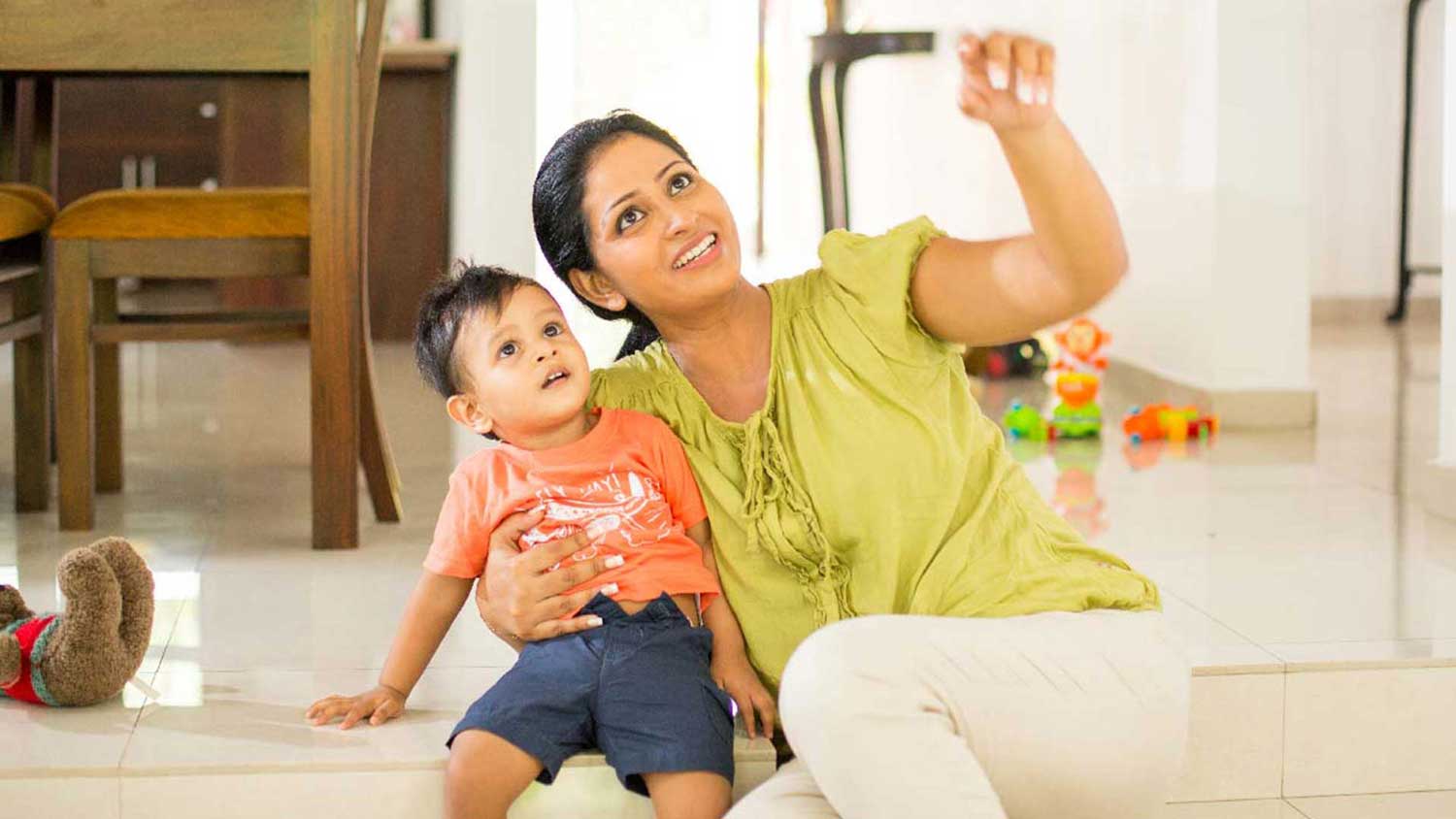























Responsive Parenting


I would like to invite you to try a mindfulness practice. Select a sound: the sound of a bell, the receipt of a text message, the singing of birds, or any sound that you regularly hear. Each time you hear this sound, let it be an invitation for you to pause. As you pause, repeat to yourself, silently, a beautiful verse written by Thich Nhat Hanh:
“The sound of the bell takes me within to my true home”
Over the next couple of days, practice this activity a few times a day and reflect on your experience with this practice. How does it make you feel? Is there any difference that you sense?
The acceptance of this invitation to a regular mindfulness practice to return to one’s true home or within oneself, for parents, opens the door to moments of stillness to be refreshed over the course of a hectic day. When your child is having a bad day and you have to deal with it, these moments will allow you the space your mind needs to return to ease so that you can respond to his/her present behaviour with greater understanding. Take a moment to listen to what is going on with your children. This sense of ease, when regularly nurtured, becomes your constant companion - your presence.
The parent-child relationship is considered to be one of the most important relationships an individual can have. Children model their behaviour by observing their parents. They also seek love and approval, and look to exert themselves within the relationship. It is a safe space for a child; a space filled with joys and trials for parents.
The joys of parenthood are celebrated while parents are not always supported through their frustrations. Whether a parent works outside the home, within the home or at home, a parent’s work appears never to end, even when the day does. The demands of parenting can thus sometimes be very overwhelming and stressful.
A mindfulness practice is a means of handling stress. Mindfulness has been described as present-moment-awareness. Mindful awareness of our breathing, senses, body, thoughts, and emotions helps us to experience what is going on in the present moment. Being fully present involves awareness of the present moment – “who am I with”, “what I am (we are) doing”, “what I am feeling” — and acceptance and gratitude for it. This awareness, acceptance, and gratitude allow for us to be at ease with ourselves. This ease seeps into our actions and our relationships.
Mindfulness practices help us to move from reaction to response. The difference between reaction and response becomes very crucial at difficult moments. Your child could throw a tantrum while you are out shopping. Everyone is staring and you can feel their judgment of you. Pause: you can decide at this moment if you will react to the tantrum and the outsiders’ looks of disapproval, or, if you will listen and respond to the needs of the circumstances. Response hails from a place of caring, thoughtfulness and ease, while reaction comes from a place of tension and stress.
It is important to emphasise that mindfulness is not positive thinking. It is not the dismissing of anger or fear or any emotion that is perceived as negative. It is a recognition that positive outcomes come from a place of recognising what we are going through in this present moment, whether that is fear, anger, happiness, or other emotion. Being able to accept each emotion, whatever it may be, makes it possible for you to control the expression of your emotions as opposed to having the emotions control you.
And this brings us to another important aspect of mindfulness – connection, self-compassion, and loving-kindness. Parenting is challenging as it is. You don’t need to add to the worry by questioning, second-guessing, and berating yourself. Be kind to yourself as you would be to others. Give yourself two stars and a wish. This is a practice to give kind and constructive feedback. The two stars are two good things that you see (there always is when you look with awareness), and present one thing that you would like to change as a wish. You need to develop a connection with your child in which you can reinforce positive behaviours while helping them to understand the consequences of negative behaviours. Two stars and a wish is one way to do this. Be kind, in words and deed, to yourself and others.
In this article, I have given you two practices that you can try: the practice of returning within yourself and a way of communicating with mindfulness. I hope they help you on this journey.
Share With:
Recommended Articles


Responsive Parenting
I would like to invite you to try a mindfulness practice. Select a sound: the sound of a bell, the receipt of a text message, the singing of birds, or any s...
Read More

A Fresh look at parenting
What is parenting? Arguably, parenting is one of the most challenging tasks a person could experience in their lifetime. However, practising appropriate ...
Read More

